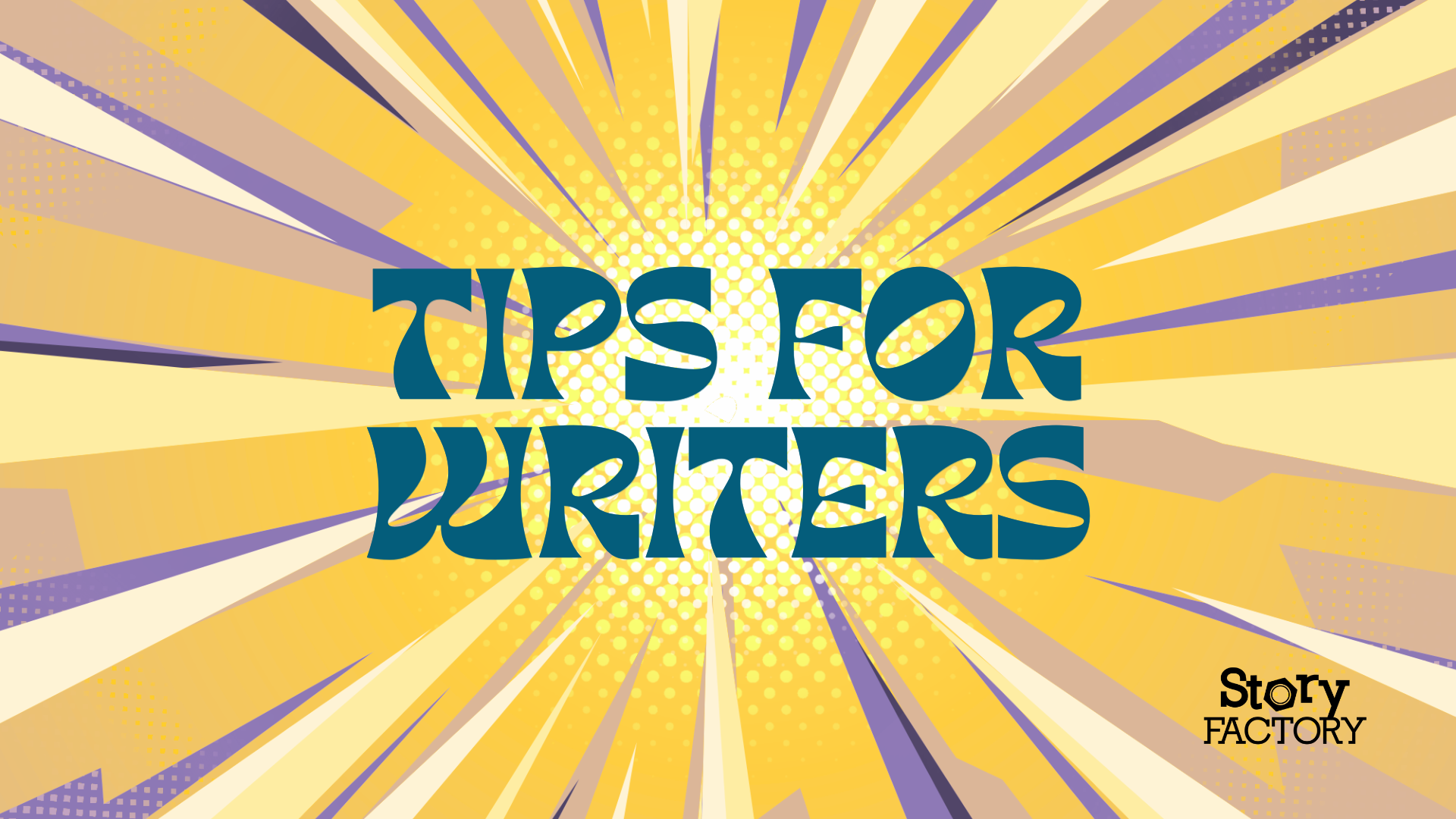
Tips and Tricks for Writers
16 May 2025
One of Story Factory’s flagship programs, Year of the Novella, supports high school-aged young people to write an extended story over the course of a year. This program culminates in the publication of their very own novella.
This is no easy feat, so the Story Factory Novella team put together a series of tips and tricks for writers; to help stave off the writing blues and keep that all-important flow going when things get tough.
On Practice
If you write scenes out of order, add a comment that describes whereabouts in the flow of your story you anticipate that that scene will go. When you go back to put all of your writing in order, this little note will help you remember what you were thinking, and keep that all-important flow in your writing!
If you feel stuck, then give your character a choice. This is a great trick to properly get into the mind of your character, and perhaps move your story in a direction you weren’t anticipating.
On Story
If you’re interested in depicting or exploring a big idea or theme in your story — like communism or inherited trauma, industry or artistic freedom — try pouring everything you think about that idea or theme into a single character. This character, and their actions, will then become symbolic — and will humanise your idea or theme in the mind of the reader.
If you find that your character is narrating their anxieties or feelings in great blocks of writing, this may “lose” your reader. It’s hard for readers to process many emotions at once. Try to focus more on the actions that your character takes and the real-life interactions they have with others, and what happens to the character as a result. When doing this, you may find that your reader will naturally feel these same anxieties or feelings without the character needing to narrate them.
If you are already several pages or even chapters into your story, give yourself a moment to re-read the very first time that we encounter your main character. What is the first thing they are doing? What is the first thing that we know about them? Try thinking about this first appearance as a symbol. For example, if your character is afraid of the unknown, is the first time we meet them when they are turning on a night-light?
If you need to reveal information for the benefit of your reader, it helps for this information to be revealed to a character that doesn’t yet know it, and will benefit from knowing it. Try to write dialogue that is directed to a character who is hearing something for the first time, especially as a substitute for narration by a character who is just “going over” thoughts or experiences they’ve had before.
Finally
Whatever it is you’re seeking won’t come in the form you’re expecting.
—Haruki Murakami
Looking for some inspiration for your own writing? Check out some of our student writing below!
